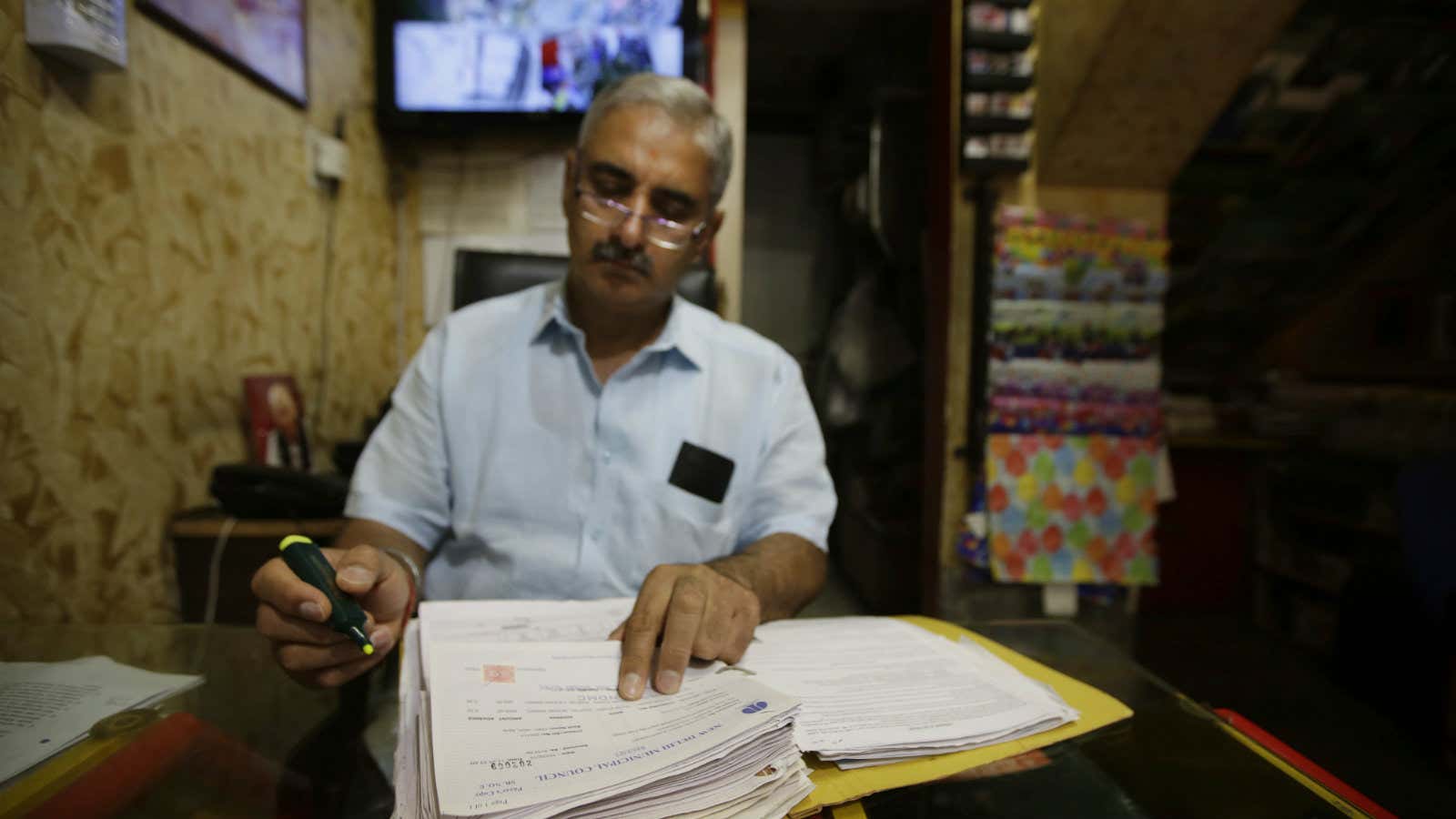In the middle of his PhD programme, Archit Gupta figured out that merely publishing papers and completing his thesis wouldn’t give him the adrenaline rush he craved. “There was intense action going on in Silicon Valley and I just couldn’t tear myself away from it,” he recalled during a telephonic interview from Bengaluru, India’s Silicon Valley, where he is now based.
After mulling over it, he dropped out of his doctorate programme at the University of Wisconsin in 2008 and headed for California. Two years later, he was in India. ”I was looking at starting something of my own…I wanted to solve a real problem,” said Gupta, a graduate of the Indian Institute of Technology, Guwahati.
Inspiration struck in early 2011. “While talking to my father (a chartered accountant), we came to the conclusion that taxes are a problem for everybody,” Gupta said. “It was a relatively untapped market with a great business opportunity.”
Two months later—just 11 days before the annual tax-returns deadline of July 31—Gupta, along with his father Raja Ram Gupta, launched an online tax filing company called ClearTax. By the time the tax-filing deadline arrived, they’d snapped up over 1,000 clients. Today, ClearTax is India’s largest e-filing tax platform, with over 1.5 million users.
Seven years on, once again, Gupta and ClearTax find themselves sitting on a potential goldmine: the goods and services tax (GST).
One tax, many troubles
On July 01, the Narendra Modi government rolled out the GST, which has been 17 years in the making. The GST intends to simplify India’s layered fiscal structure by subsuming 16 different taxes hitherto levied at different rates in different places. Hereon, it will be one central tax with four different slabs. So now, cooking gas will be taxed at 5%, jam at 12%, cornflakes at 18%, and a refrigerator at 28%, irrespective of the state where it’s sold.
The GST is aimed at improving efficiency and compliance by also digitising the entire procedure. Under the GST framework, businesses with an annual turnover of over Rs20 lakh must file their taxes online every month along with the annual returns. Until now, they had to do it only annually or quarterly.
Now, invoices are to be uploaded online by the 10th of every month. Following this, the submissions will be matched with those filed by every other merchant in the supply chain for verification by the 15th of the month. The final tax liability will be cleared by the 20th of the month. Even if one person in the chain fails to upload the correct document, or if there are mismatches in the sales or purchase records, the process will go awry.
So, while the intent was to simplify the tax structure, the GST may have ended up making tax filing even more convoluted for some 13 million registered companies. Apart from the confusion that the GST is likely to trigger, countless small businesses will also be forced to invest in computers and hiring chartered accountants (CAs), thereby pushing up costs.
The government itself hasn’t been shy of admitting “teething problems.” And the companies have been given two months to comply. They are now scrambling for affordable and effective solutions. Just what Bengaluru-headquartered ClearTax is offering.
“More than a crore (10 million) businesses are affected,” said Gupta, 32, who now serves as ClearTax’s CEO. “It is the one of the biggest tax reforms in the world and is also very complex. For players like us, it spells a dramatic opportunity because we are on the cusp of tax and technology and, therefore, can service a large audience.”
Clearing the tax maze
ClearTax’s primary service is straightforward: Individuals upload their Form 16s (an annual statement issued by the employer detailing salary and the tax deducted at source), and income and investment details, and the platform’s software calculates a user’s tax liability. The entire process can be completed within seven minutes, the company claims.

For individuals, the ClearTax platform is free, unless they require a CA’s help in filing returns. ClearTax has relationships with over 10,000 CAs and over 220 companies for this. For specific questions on tax and compliance, experts are made available, for a fee. The other money-spinner is ClearTDS, an online platform that companies can use to file the returns on tax deduction at source (TDS) for their employees. It is used by the likes of ICICI Bank and TechMahindra.
For the GST, ClearTax has rolled out a custom-built, cloud-based software. It allows accountants to centralise data on their client businesses, prepare standardised invoices, check them for mismatches with invoices filed by the client’s suppliers, undertake corrections, and finally file the returns directly on the government portal. The software will be free to use for the first three months, after which ClearTax will charge Rs5,000 a year.
There’s also a free ClearTax helpline where merchants can reach out to experts who can handhold them through the GST return-filing process. For a fee, these experts can guide businesses in minimising their tax-outgo.
To build its GST-related taxation services, ClearTax has invested Rs32 crore. It plans to pump in more money as it targets about 10 million businesses that will be affected due to the new tax-regime.
In June 2016, the as yet unprofitable firm raised $12 million (Rs78 crore) from SAIF Partners. The company’s other investors include American seed accelerator Y Combinator, Sequoia Capital, and PayPal Co-founder Max Levchin.
But ClearTax may not have a free run in the market. A small army of companies—from big accounting firms to tiny startups—are positioning themselves to tap into the demand prised open by the GST. A cursory check on the Google app store shows over 75 applications offering tax solutions.
Gupta, however, is unperturbed, especially now that he’s got enough money to outmuscle the competition.
“Our mantra is to keep it simple and accessible and that’s what consumers want,” he said. “We have proved it as far as individual tax-payments are concerned, and are now the largest online firm in this space.”
Goods & Services Tech: This is the first in a series of articles on technology-driven startups that could benefit from India’s biggest tax reform, the Goods & Services Tax.
